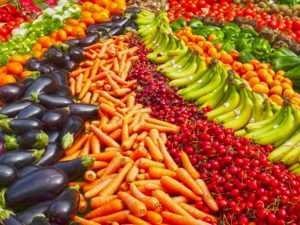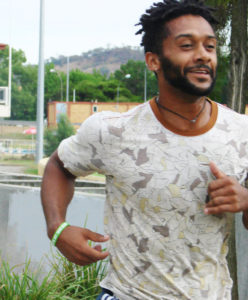
Ever wondered what exactly a dietitian does?
We sat down with Nelson, a qualified, practicing dietitian to answer all of our questions!
Q: What does a dietitian do?
A: In summary, we thoroughly assess the diet and nutrition related health of individuals and groups to determine and help treat underlying causes of nutrition related health issues. We ultimately provide advice/education and advocate for improved environments to help support people in making healthy food choices.
Q: How long have you worked in the field of nutrition and dietetics?
A: I have worked in this field for 3 years.
Q: What drew you to this field?
A: I had a strong interest in food behaviours and the sociology around food. I have always been interested in understanding why it is so difficult for people to make healthy food choices in today’s society. There are so many food options today yet more often than not people choose the less healthier option. This seems to be due to all sorts of complex barriers; social, behavioural, cultural etc.
Q: Do you work in a specialised area of dietetics?
A: I’ve mainly worked in the area of remote Indigenous health, with a focus on cross cultural shared learning and overcoming food insecurity. Food insecurity exists when people don’t have access to sufficient, safe and nutritious food that meets their dietary needs and food preferences.
Q: What is it like working in Indigenous health?
A: The cultural shared learning aspect of working in Indigenous health is very enriching and has opened my eyes to a whole new way of looking at food and the world. A lot of the people i work with experience food security issues, which can be very difficult to affect at a local level. A lot of the changes that need to happen in this space are bigger, broader policy changes. I often find in remote indigenous communities there is a strong sense of community when to comes to food. People tend to eat together in family groups, and eating is almost always a social activity. There’s less eating in front of the TV and more hunting and catching food to share with their family.
Q: What are some of the more common challenges you see working as a dietitian?
A: I think the biggest challenge is big food companies. Huge amounts of money are put into the marketing of high profit foods, such as fast food, which are often less healthy options. It’s really hard to challenge that marketing, as there isn’t enough money to match the marketing for healthy foods from the government. There is very little regulation on the advertising of foods, and often health food claims can be very misleading.
Q: What are your top 3 tips on eating a balanced diet?
A: Tip 1: Eat mindfully – learn to listen to your stomach and consider the environment in which you are eating.
Tip 2: Cook your own meals with family and friends as often as possible. Dinner parties are much more rewarding than eating out.
Tip 3: Prioritise health over income. The health and wellbeing of you and your family should come before shiny new things.
Q: Why would you recommend someone become a dietitian?
A: I think dietetics it’s a very interesting area in which there is always new, fascinating information coming out. People love eating and talking about food.
As a dietitian you learn a lot about people through the mostly positive lens of food and can make a significant impact on people’s lives, which is really rewarding.
A bit about Nelson:
 Nelson Berko graduated from the University of Newcastle with a Bachelor of Nutrition and Dietetics in 2014. Nelson is passionate about working in strength based and culturally appropriate ways with Australia’s most disadvantaged populations, to improve health inequities within Australian society. As part of his Nutrition and Dietetics degree, Nelson moved to rural NSW to take part in a year- long professional placement with the University of Newcastle Department of Rural Health (UoNDRH) in Tamworth, NSW. Here he gained professional practice experience in rural health settings, while participating in community engagement programs throughout the year with the UoNDRH community engagement team. Nelson’s undergraduate rural health experience, particularly within community controlled health services and programs, has inspired him toward a career working with and learning from Indigenous Australian communities. He believes the adoption of a health care model that reflects the holistic, health concepts of Indigenous Australian culture will not only improve the health of Indigenous Australians, but also greatly improve the health of the wider Australian community.
Nelson Berko graduated from the University of Newcastle with a Bachelor of Nutrition and Dietetics in 2014. Nelson is passionate about working in strength based and culturally appropriate ways with Australia’s most disadvantaged populations, to improve health inequities within Australian society. As part of his Nutrition and Dietetics degree, Nelson moved to rural NSW to take part in a year- long professional placement with the University of Newcastle Department of Rural Health (UoNDRH) in Tamworth, NSW. Here he gained professional practice experience in rural health settings, while participating in community engagement programs throughout the year with the UoNDRH community engagement team. Nelson’s undergraduate rural health experience, particularly within community controlled health services and programs, has inspired him toward a career working with and learning from Indigenous Australian communities. He believes the adoption of a health care model that reflects the holistic, health concepts of Indigenous Australian culture will not only improve the health of Indigenous Australians, but also greatly improve the health of the wider Australian community.
